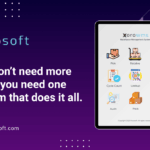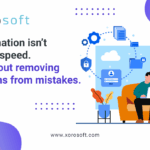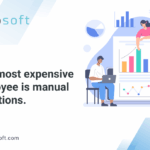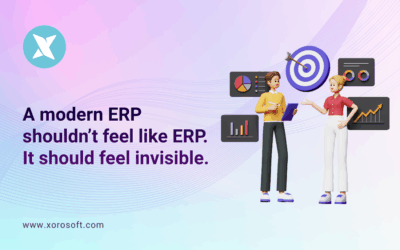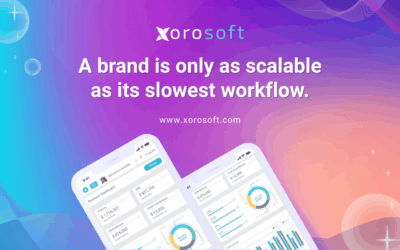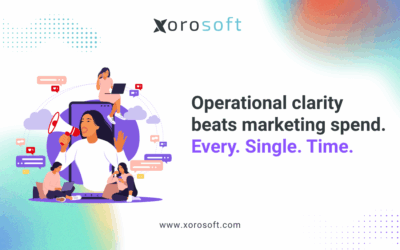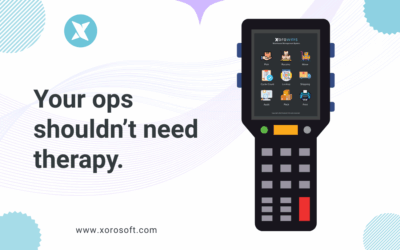
Introduction to ERP systems
In today’s fast-paced business environment, efficient project management is crucial for success. With the increasing complexity of projects and the need for real-time collaboration, organizations are turning to technology to streamline their project management processes. One such technology that has gained immense popularity is the Enterprise Resource Planning (ERP) system. An ERP system integrates various aspects of a business, including project management, into a single platform, providing a centralized repository for data and enabling seamless communication and collaboration across teams.
Benefits of using an ERP system
Implementing an ERP system offers several benefits for organizations looking to streamline their project management processes. Firstly, an ERP system provides real-time visibility into project progress, allowing managers to track key metrics such as budget, timeline, and resource allocation. This visibility enables proactive decision-making and helps in identifying and addressing issues before they escalate.
Secondly, an ERP system improves communication and collaboration among project teams. With features like instant messaging, task assignment, and document sharing, team members can work together seamlessly, irrespective of their physical location. This eliminates the need for lengthy email chains or in-person meetings, saving time and increasing productivity.
Additionally, an ERP system enhances resource management by providing a comprehensive view of resource availability and utilization. This enables efficient resource allocation, ensuring that the right people are assigned to the right tasks at the right time. Consequently, organizations can optimize their resource utilization and minimize any potential bottlenecks.
Streamlining project management with an ERP system
Project management involves various activities, such as planning, scheduling, budgeting, and resource allocation. An ERP system streamlines these activities by providing a centralized platform for managing all project-related data and processes. Let’s explore how an ERP system can optimize project management:
1. Planning and scheduling
An ERP system enables effective project planning and scheduling by providing tools for creating project timelines, defining milestones, and setting dependencies. Project managers can allocate resources, assign tasks, and track progress, ensuring that projects stay on track and are delivered within the stipulated timeframe.
2. Resource allocation
With an ERP system, organizations can efficiently allocate resources based on their availability, skills, and workload. Automated resource allocation algorithms ensure optimum resource utilization, reducing the risk of overloading or underutilizing team members. This leads to improved productivity and faster project completion.
3. Budget management
An ERP system offers robust budget management capabilities, allowing project managers to track project costs, monitor expenses, and compare actuals against forecasts. This ensures that projects stay within budget and helps in identifying any cost overruns or discrepancies early on. By having a clear view of project finances, organizations can make informed decisions and mitigate financial risks.
Key features of Xorosoft ERP
When it comes to ERP solutions for project management, Xorosoft ERP stands out as a reliable and feature-rich option. Xorosoft ERP offers a comprehensive suite of project management tools that can streamline your organization’s project processes. Here are some key features of Xorosoft ERP:
1. Project planning and tracking
Xorosoft ERP provides intuitive project planning and tracking tools that enable project managers to create detailed project plans, set milestones, assign tasks, and track progress in real-time. With a visual dashboard, managers can monitor project health, identify bottlenecks, and take corrective actions proactively.
2. Resource management
Efficient resource management is crucial for successful project execution. Xorosoft ERP offers robust resource management capabilities, allowing organizations to effectively allocate resources, manage their availability, and track their utilization. This ensures that projects are adequately staffed and that resources are optimally utilized, leading to improved project outcomes.
3. Collaboration and communication
Xorosoft ERP facilitates seamless collaboration and communication among project teams through its integrated messaging and document sharing features. Team members can communicate in real-time, share files, and collaborate on project-related tasks, fostering a culture of transparency and teamwork.
How an ERP system improves inventory management
Effective inventory management is vital for organizations across industries, as it directly impacts customer satisfaction, operational costs, and overall profitability. An ERP system plays a significant role in optimizing inventory management processes. Here’s how an ERP system can improve inventory management:
1. Accurate demand forecasting
An ERP system leverages historical data, market trends, and customer insights to generate accurate demand forecasts. By having a clear understanding of future demand, organizations can align their inventory levels accordingly, avoiding stockouts or excess inventory.
2. Real-time inventory tracking
With an ERP system, organizations can track their inventory in real-time, enabling them to have up-to-date visibility into stock levels, locations, and movements. This helps in preventing stockouts, optimizing reorder points, and reducing carrying costs.
3. Streamlined procurement and supply chain
An ERP system streamlines the procurement process by automating purchase orders, supplier management, and invoice processing. This ensures timely procurement of goods, reducing lead times and minimizing the risk of stockouts. Additionally, an ERP system provides visibility into the entire supply chain, allowing organizations to identify bottlenecks and optimize logistics operations.
The role of an ERP system in accounting processes
Accounting is a critical function in any organization, and an ERP system plays a crucial role in streamlining accounting processes. Here’s how an ERP system improves accounting efficiency:
1. Automated financial transactions
An ERP system automates financial transactions, such as invoice generation, payment processing, and expense management. This eliminates manual data entry, reduces the risk of errors, and saves valuable time for accountants.
2. Real-time financial reporting
With an ERP system, organizations can generate real-time financial reports, including income statements, balance sheets, and cash flow statements. This enables timely decision-making and provides accurate insights into the financial health of the organization.
3. Integration with other modules
An ERP system integrates accounting with other modules, such as project management, inventory management, and procurement. This integration ensures seamless flow of data across departments, eliminates data silos, and improves overall operational efficiency.
Implementing Xorosoft ERP in your organization
If you’re considering implementing an ERP system to streamline your project management processes, Xorosoft ERP is worth considering. Here’s how you can implement Xorosoft ERP in your organization:
- Assess your organization’s project management needs and define clear objectives for implementing Xorosoft ERP.
- Engage key stakeholders from different departments to understand their requirements and gain their buy-in.
- Develop a detailed implementation plan, including timelines, resource allocation, and change management strategies.
- Configure Xorosoft ERP to align with your organization’s project management processes and customize it according to your specific needs.
Conclusion: The future of project management with ERP systems
As businesses continue to grow and evolve, project management will become increasingly complex. Adopting an ERP system, such as Xorosoft ERP, can significantly streamline project management processes, improve efficiency, and enhance collaboration. By leveraging the power of ERP systems, organizations can gain real-time visibility, optimize resource allocation, and make data-driven decisions. Embrace the future of project management with ERP systems and book a demo with Xorosoft today to experience the benefits firsthand.


